Ready to learn more?
Get all the details straight to your inbox!
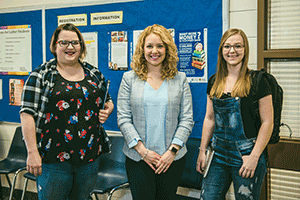
The priority deadline for academic application is March 15. To book a personalized enrolment counselling appointment, contact our Recruitment Office at 1-306-206-2117.
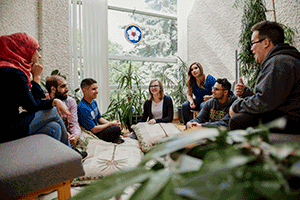
Luther College appeals to students who want to study in a safe, nurturing, and inclusive environment. We welcome students of all faiths, ethnicities, backgrounds, religions, genders, and sexual orientations.
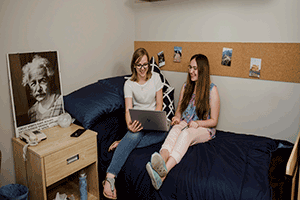
Our student residence, The Student Village at Luther College, welcomes residents from ALL post-secondary institutions in Regina. Rooms come with a meal plan, free laundry, free wi-fi, and a great sense of community.
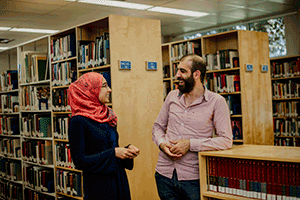
The Luther Library has over 24,000 items in its collection, 5,000 books checked out per year, and 7,000 students who come through its door per month.

Smaller class sizes at Luther College means more individualized attention and better connections with your professors, classmates, and academic advisors.
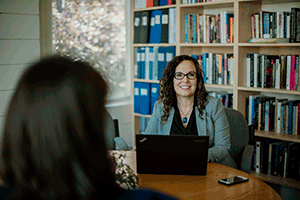
Free enrolment counselling support and invaluable one-on-one academic advising are available for all programs at Luther College.
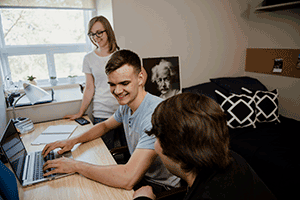
Wondering where to live? Our student residence, The Student Village at Luther College, is considered a great choice for first-year student accommodation. Individual private rooms mean you can stick to your own schedule and you never have to deal with roommate hassles.
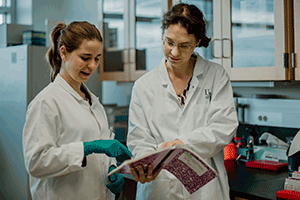
Luther College offers Bundles programs that group together first-year students and classes to give you a great start and help ease the transition from high school to university.
Get all the details straight to your inbox!
Keynote Speaker: Dr. David O. Renz, an expert on the leadership and governance of nonprofit organizations and networks, will be the keynote speaker. Dr. Renz is Beth K. Smith/Missouri Chair in Nonprofit Leadership and Director of the Midwest Center for Nonprofit Leadership (MCNL), an education, research and outreach center of the Bloch School of Management at the University of Missouri-Kansas City. The mission of the MCNL is to enhance the performance and effectiveness of the nonprofit sector through high quality community-oriented education, applied research, and problem-solving. Through local capacity building and a model of interaction that spans boundaries, Renz has fostered the development of truly engaged and reciprocal relationships that benefit the community and university.
Dr. Renz has worked with more than 135 boards, commissions and leadership networks in the past decade and writes frequently for both the academic and practice communities. He has produced more than 130 chapters, reports, and articles for journals such as Nonprofit Management and Leadership, The Nonprofit Quarterly, Strategic Governance, Public Administration and Review, and Nonprofit and Voluntary Sector Quarterly. He is the editor of the third and fourth editions of The Jossey-Bass Handbook of Nonprofit Leadership and Management and co-editor of the Research Handbook on Entrepreneurs’ Engagement in Philanthropy. Renz earned his PhD in Organization Theory and Design at the University of Minnesota, USA.
Origin of the Forum: In the fall, community-engaged staff from Campion and Luther College met to welcome a "new kid on the service learning block", VSSN Director and Luther College Associate Professor, Dr. Yvonne Harrison. With engagement an integral component of how students in Campion and Luther College’s Nonprofit Sector Leadership and Innovation (NSLI) Certificate Program learn, a decision was reached to extend the conversation to others on campus. In December, an interdisciplinary group of community engaged faculty, staff, and administrators met and discussed the diversity of language, activities and benefits of engagement on a number of levels. Barriers to engagement also emerged that pointed to the need to deepen and extend the conversation to include the nonprofit community.
Objective of the Forum: The forum was envisioned by the planning group as an invitation to form a community of practice, a term Wenger-Trayner (2011) defines as “a group of people who share a concern or passion for something they do, and learn how to do it better as they interact….” To this end, the objective of the forum is to meet as a community, share perspectives and learnings, create bonds and connections to further develop in relationship and practice around engaged learning, research, and service.